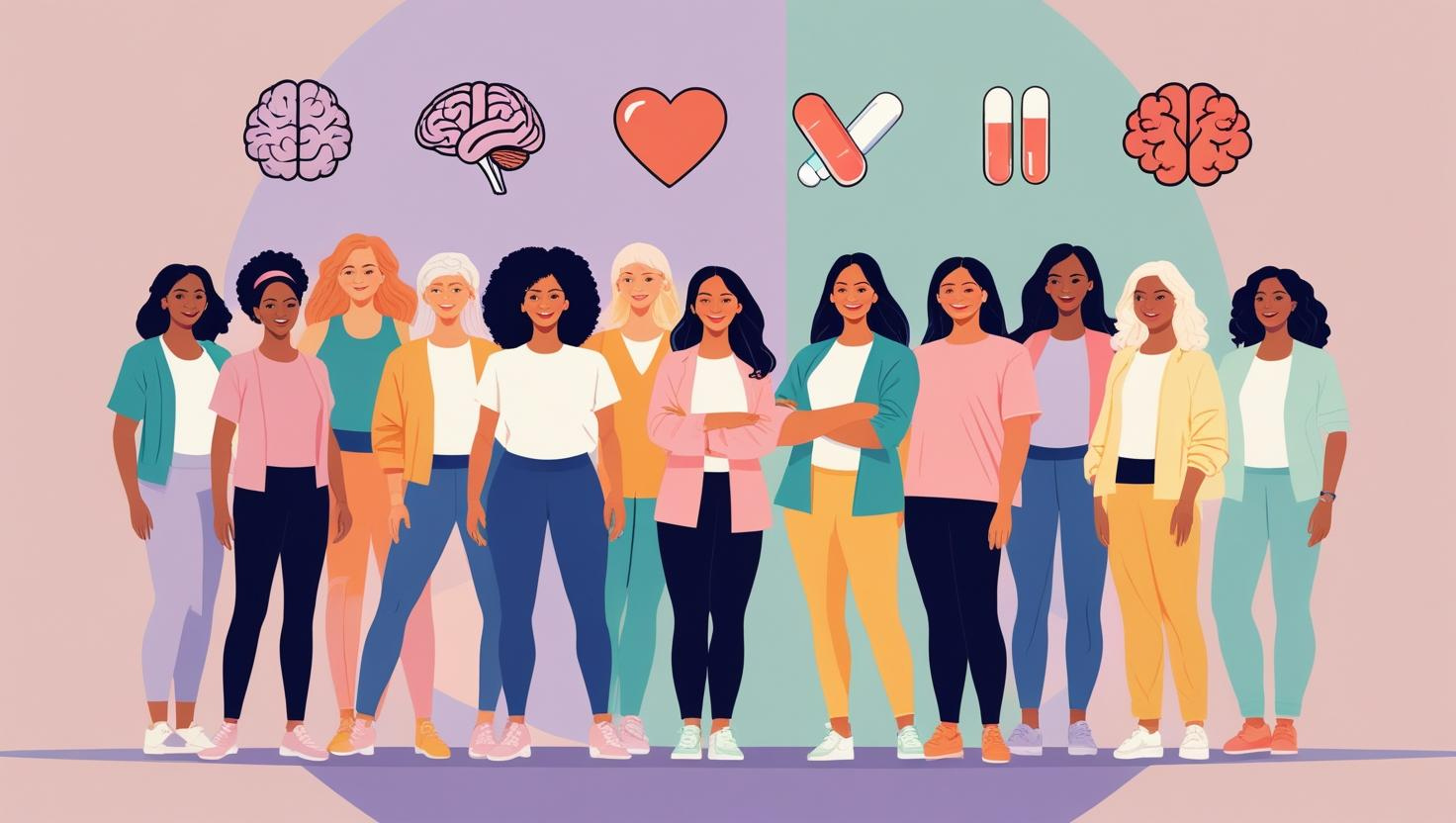Introduction: Understanding Women’s Health Issues in 2025
Women’s health issues continue to evolve in 2025 due to changing lifestyles, environmental factors, and advancements in medical science. Now, more than ever, it is essential to address these concerns holistically—from mental well-being to reproductive health. This comprehensive guide examines the key health challenges women face and offers lifestyle changes, preventive tips, and essential supplements to support overall wellness.
1. Reproductive Health Challenges in Women’s Health Issues
One of the most important aspects of women’s health is reproductive health. Millions of women worldwide suffer from diseases like infertility, endometriosis, and PCOS (Polycystic Ovary Syndrome).
Why It Matters:
- PCOS affects 1 in 10 women of reproductive age.
- Endometriosis often goes undiagnosed, leading to chronic pain and fertility problems.
Learn more about Effective Acne Treatments at Home that often correlate with PCOS symptoms.
Amazon Pick: Myo-Inositol & D-Chiro Inositol Supplement for PCOS Support
2. Mental Health and Emotional Well-being in Women’s Health Issues
Women frequently experience anxiety, despair, and postpartum depression as a result of hormonal changes, life stressors, and social expectations.
Tips to Improve Mental Health:
- Prioritize self-care and mindfulness.
- Seek therapy or counseling when needed.
Read about Why Do I Sweat in My Sleep? which may be linked to anxiety or menopause.
Amazon Pick: Calm Magnesium Powder for Stress and Sleep
3. Hormonal Imbalance in Women’s Health Issues
Changes in hormones affect mood, energy, metabolism, and menstruation. Major hormonal issues include menopause, adrenal exhaustion, and thyroid disorders.
Signs to Watch For:
- Irregular periods
- Weight gain or fatigue
Check out our Top 10 Best Vitamins for Hair and Skin Health for hormonal balance support.
4. Cardiovascular Disease
Despite being the biggest cause of death for women, heart disease is frequently disregarded.
Prevention Tips:
- Eat a balanced diet.
- Stay active and manage stress.
Amazon Pick: Omega-3 Fish Oil Softgels for Heart Health
5. Osteoporosis and Bone Health
Women are more vulnerable to bone density loss following menopause, which can result in fractures and restricted mobility.
Preventive Measures:
- Include calcium and vitamin D-rich foods.
- Engage in weight-bearing exercises.
Discover Calcium-Rich Foods for Strong Bones
Amazon Pick: Calcium + D3 Supplement
6. Breast and Cervical Cancer
Regular screenings and self-exams are crucial for early detection.
Screening Schedule:
- Mammograms: Every 1-2 years after age 40
- Pap smears: Every 3 years for women aged 21–65
Amazon Pick: Breast Self-Exam Guide Tool
7. Autoimmune Disorders
Autoimmune conditions such as rheumatoid arthritis, Hashimoto’s, and lupus are more common in women than in men.
Management Tips:
- Anti-inflammatory diet
- Regular medical care
Related read – Healthy Skin and Hair Begins from Within
8. Chronic Conditions That Impact Women Differently
Because of hormonal and physiological variations, women are more or less affected by many chronic illnesses than men. Women are frequently misdiagnosed or underdiagnosed with conditions like heart disease, osteoporosis, and autoimmune illnesses.
Tips:
- Get regular checkups and screenings for early detection.
- Discuss any persistent fatigue, joint pain, or chest discomfort with your doctor.
- Incorporate calcium-rich foods and weight-bearing exercises to protect bone health.
9. Sexual Health and Intimacy Concerns in Women
A vital component of general health is sexual wellness. Women frequently experience intimacy-related health problems that are typically unsaid, such as reduced libido, pain during intercourse, or hormone abnormalities.
Tips:
- Discuss any changes or discomfort with your healthcare practitioner in an honest manner.
- If advised, apply lubricant or hormone therapy.
- Make time for routine STI testing and engage in safe sexual behavior.
10. Navigating Health in Different Life Stages
Women experience particular health issues at every period of life, from puberty to menopause. For long-term well-being, it is essential to approach each stage with the appropriate information and attention.
Tips:
- Teens: Educate early about periods, hygiene, and emotional changes.
- Pregnancy/Postpartum: Prioritize prenatal vitamins, mental health, and postpartum care.
- Menopause: Manage symptoms with lifestyle adjustments and medical guidance.
FAQs about Women’s Health Issues
Q1: What are the most common women’s health issues in 2025?
A: PCOS, mental health challenges, hormonal imbalances, osteoporosis, and cardiovascular diseases are top concerns.
Q2: How can women naturally balance their hormones?
A: A healthy diet, stress management, supplements, and regular exercise can help balance hormones.
Q3: At what age should women start health screenings?
A: Screenings like pap smears begin at 21, and mammograms typically start at 40.
Q4: How do I know if I have a hormonal imbalance?
A: Symptoms include fatigue, mood swings, irregular periods, and hair loss.
Q5: Can supplements really help?
A: Yes, quality supplements like vitamin D, magnesium, and omega-3s can support overall women’s health.
Conclusion: Prioritize Your Well-being in 2025
Women’s health issues require personalized attention and proactive care. By staying informed, seeking early screenings, and integrating the best supplements for women’s health, you can live a vibrant, balanced life. Don’t wait until symptoms worsen—start making small changes today that have a big impact tomorrow.
Call to Action
Ready to take charge of your health? Explore more health guides at FitFusionBlogs.com and shop recommended wellness supplements on Amazon.
Amazon Affiliate Disclosure: As an Amazon Associate, we may earn commissions from qualifying purchases at no extra cost to you.
